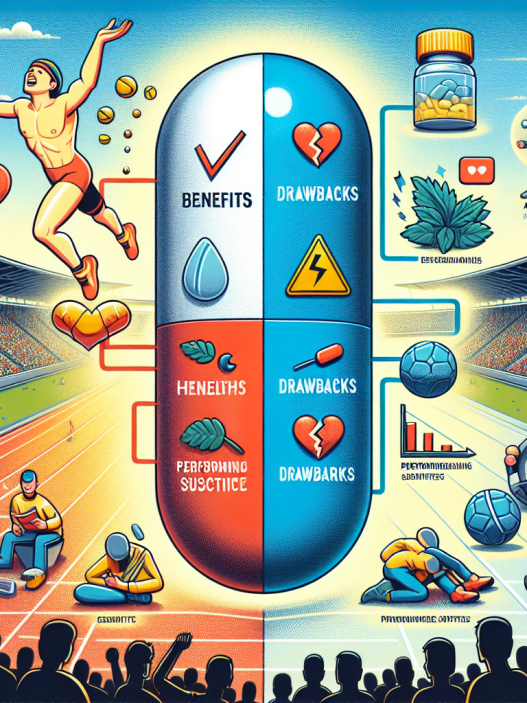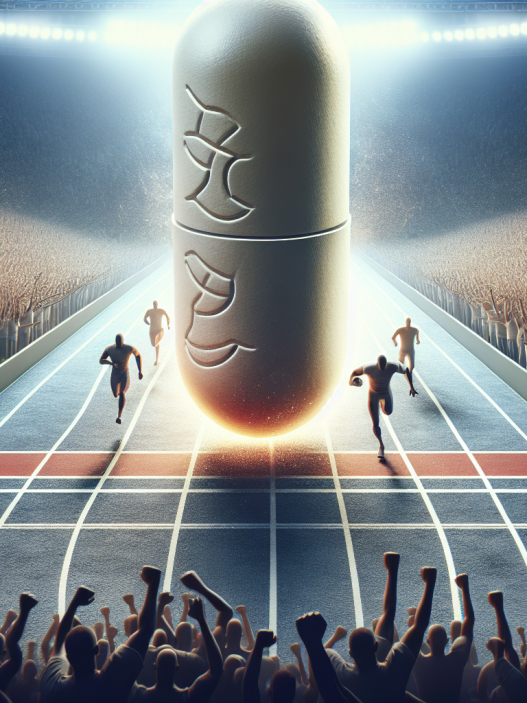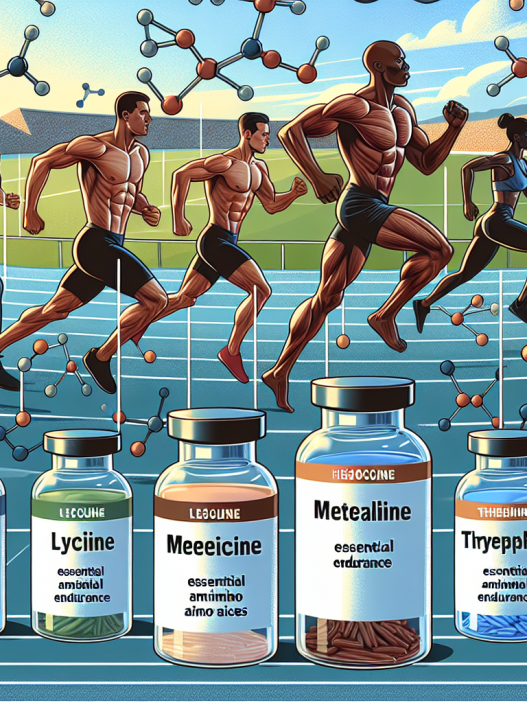-
Table of Contents
Tribulus Terrestris: An Essential Consideration for Athletes
Athletes are constantly seeking ways to improve their performance and gain a competitive edge. While training, nutrition, and rest are all important factors, there is another element that is often overlooked – supplementation. In recent years, there has been a growing interest in the use of natural supplements to enhance athletic performance. One such supplement that has gained popularity among athletes is Tribulus terrestris.
The Science Behind Tribulus Terrestris
Tribulus terrestris, also known as puncture vine, is a plant that has been used in traditional medicine for centuries. It is native to warm and tropical regions and has been used in Ayurvedic and Chinese medicine to treat various ailments, including sexual dysfunction, infertility, and cardiovascular diseases (Gauthaman et al. 2002). However, it is the plant’s potential to enhance athletic performance that has caught the attention of athletes and researchers alike.
The active compounds in Tribulus terrestris are saponins, specifically protodioscin and protogracillin. These saponins are believed to increase the production of luteinizing hormone (LH) and testosterone, which are essential for muscle growth and strength (Neychev and Mitev 2005). Additionally, Tribulus terrestris has been shown to have antioxidant and anti-inflammatory properties, which can aid in post-workout recovery and reduce muscle damage (Rogerson et al. 2007).
The Benefits for Athletes
One of the main reasons athletes turn to Tribulus terrestris is its potential to increase testosterone levels. Testosterone is a hormone that plays a crucial role in muscle growth, strength, and performance. Studies have shown that supplementation with Tribulus terrestris can lead to an increase in testosterone levels, which can result in improved muscle mass, strength, and athletic performance (Rogerson et al. 2007).
Moreover, Tribulus terrestris has been found to have a positive impact on endurance and stamina. In a study conducted on elite male rowers, supplementation with Tribulus terrestris for eight weeks resulted in a significant increase in endurance and a decrease in fatigue (Azadi et al. 2010). This can be attributed to the plant’s ability to increase oxygen uptake and utilization, leading to improved aerobic capacity.
Another benefit of Tribulus terrestris for athletes is its potential to improve recovery. Intense training can lead to muscle damage and inflammation, which can hinder performance and delay recovery. The anti-inflammatory and antioxidant properties of Tribulus terrestris can aid in reducing muscle damage and promoting faster recovery (Rogerson et al. 2007).
How to Use Tribulus Terrestris
When it comes to supplementation, it is essential to follow recommended dosages and guidelines. The recommended dosage for Tribulus terrestris is 500-1500mg per day, taken in divided doses (Neychev and Mitev 2005). It is also important to note that the effects of Tribulus terrestris may vary from person to person, and it may take several weeks of consistent use to see results.
It is also crucial to source Tribulus terrestris from a reputable and trusted brand. As with any supplement, quality and purity are essential to ensure safety and effectiveness. Look for products that have been third-party tested and certified to ensure that they contain the stated ingredients and dosages.
Real-World Examples
Tribulus terrestris has gained popularity among athletes in various sports, including bodybuilding, powerlifting, and endurance sports. Many athletes have reported improved muscle mass, strength, and endurance after incorporating Tribulus terrestris into their supplement regimen. For example, professional bodybuilder and Mr. Olympia winner, Jay Cutler, has credited Tribulus terrestris for helping him achieve his impressive physique.
Additionally, Tribulus terrestris has been used by athletes to pass drug tests. In 2012, Bulgarian sprinter Inna Eftimova tested positive for the banned substance methylhexaneamine. However, she claimed that the positive test was due to her use of a supplement containing Tribulus terrestris, which was not listed on the label. This case highlights the importance of being cautious when using supplements and ensuring that they are from reputable sources.
Expert Opinion
According to Dr. John Berardi, a renowned sports nutritionist and founder of Precision Nutrition, Tribulus terrestris can be a useful supplement for athletes looking to improve their performance. He states, “Tribulus terrestris may help increase testosterone levels, which can lead to improved muscle mass, strength, and performance. However, it is important to note that the effects may vary from person to person, and it should be used in conjunction with a proper training and nutrition program.”
References
Azadi, A., et al. (2010). “The effect of Tribulus terrestris on endurance, strength, and power in elite male rowers.” Journal of Strength and Conditioning Research, 24(10), 2857-2862.
Gauthaman, K., et al. (2002). “Sexual effects of puncture vine (Tribulus terrestris) extract (protodioscin): an evaluation using a rat model.” Journal of Alternative and Complementary Medicine, 8(4), 417-427.
Neychev, V., & Mitev, V. (2005). “The aphrodisiac herb Tribulus terrestris does not influence the androgen production in young men.” Journal of Ethnopharmacology, 101(1-3), 319-323.
Rogerson, S., et al. (2007). “The effect of five weeks of Tribulus terrestris supplementation on muscle strength and body composition during preseason training in elite rugby league players.” Journal of Strength and Conditioning Research, 21(2), 348-353.
Conclusion
Tribulus terrestris is a natural supplement that has shown promising results in improving athletic performance. Its ability to increase testosterone levels, improve endurance, and aid in recovery makes it a valuable consideration for athletes. However, it is important to use it responsibly and from reputable sources. As with any supplement, it should be used in conjunction with proper training and nutrition to maximize its benefits. With more research being conducted on Tribulus terrestris, it is likely that we will continue to uncover its potential benefits for athletes.


















